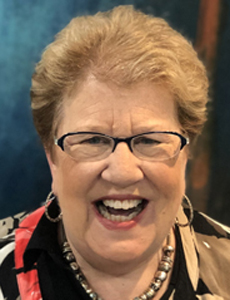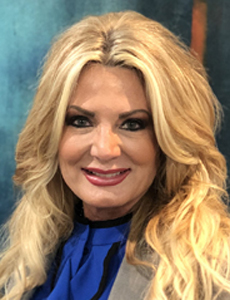How Telephonic Nurse Case Managers Bust Through Claims Roadblocks

Despite some obstacles, telemedicine is quickly becoming the future of care. More doctors are consulting with patients over video calls to improve care in rural areas, and even tech giants like Amazon are trying to get in on the telemedicine game.
Telephonic care is a huge part of that.
“People are used to things that are not face-to-face, and they tend to form relationships more quickly because of that,” said Bonnie Dayhaw, vice president of clinical services at Ascential Care Partners. Dayhaw is also a certified case manager and registered nurse.
Increased connectivity enables consumers to get expert medical advice on demand through their phones. At Ascential, they asked, “Why shouldn’t injured workers have the same accessibility to medical professionals?”
“To have a nurse on the phone who you can call any time you want, I think it’s become extremely valuable,” Dayhaw said.
Enter telephonic nurse case management, which enables nurse case managers (NCMs) to help their injured workers and advocate for their patients all without leaving the office, saving both time and money.
“I think a whole bunch of the case management piece can be done telephonically. Certainly, it’s much less costly for the carriers, the TPAs, employers,” Dayhaw said.
At Ascential, they have found that telephonic case management also enables NCMs to aid in cases that wouldn’t typically be assigned a case manager, get workers back to work sooner and prevent claimant fraud.
Here are four stories they shared that prove telephonic case management can bust claims roadblocks.
Who You Gonna Call? Your Nurse Case Manager
Anyone with an internet connection knows we live in the age of medical anxiety. Anytime someone has a cough or feels an ache, they jump on Google only to be treated to a deluge of search engine diagnoses each more terrifying than the last.
Getting a diagnosis and a treatment plan from a doctor doesn’t necessarily reduce patient’s anxiety either. Graphic images and videos from surgeries often circulate online, treating patients to images of sliced skin and exposed organs that normally remain within the operating room.
“Nowadays, before people go into surgery, they go on YouTube and they look it up and they see the actual surgery. And it scares them,” Dayhaw said.
According to Dayhaw, this affects even common surgeries that wouldn’t typically be assigned NCMs. Having that anxiety before a minor procedure can cause workers to either delay surgery or face undue panic. When this delays their treatment, however, telephonic case management takes on a new role.

Bonnie Dayhaw, vice president of clinical services, Ascential Care Partners
Such was the case when one of Ascential’s telephonic case managers was asked to talk to a patient going in for a hernia repair. The man had delayed surgery for three months before the nurse was called in to talk to him about the procedure.
When he got on the phone with the nurse, he had a flood of questions ranging from worries about what could go wrong to asking what his life would be like if he didn’t have the surgery.
“We just kept talking to him and bonding with him, and thankfully, his wife was a proponent of the surgery. So she kind of supported us and supported anything we would say to him. We didn’t tell him he was silly for being scared,” Dayhaw said.
As the telephonic NCM talked to him, she realized what his true fear was: The inability to hold his child.
“His big thing ended up being he didn’t like the inability to pick up his child. You know, with a hernia, he wouldn’t have the ability to pick up his child. So we just started focusing on the positives that would happen after the surgery,” Dayhaw said.
After three long phone calls, they were able to convince him to get the surgery. He had the procedure in a matter of weeks and called to thank the team afterwards.
“I remember he called after the surgery, and he said to the nurse, ‘Everything you told me would happen after surgery has happened, so I was already expecting it. It went just fine,’ ” Dayhaw said.
A Call to a Medical Director Speeds Up Return-to-Work
While telephonic case management can allow NCMs to advocate for workers who wouldn’t normally be assigned a case manager, some people worry that telephonic nurses won’t be able to build the same relationships field nurses do with their injured workers.
“I think, actually in telephonic case management, you have to work a little bit harder, because you don’t have the advantage of being face to face,” said Michele Settel, president of Ascential Care Partners.
“I’m constantly amazed when I listen to our nurses and hear the stories of the rapport they work to build with their injured workers.”
Building trust with an injured worker isn’t the only hurdle telephonic NCMs have to overcome, however. They also have to build trust with doctors.
“One of the keys to telephonic case management is to try to get the same case manager working with the same doctors all the time, because then that relationship forms with their staff and with the doctor as well. With that, they tend to learn to trust you so you can send them information that is particular to that patient and they’ll tend to listen to you,” Dayhaw said.
For many NCMs, caring for injured workers means helping them achieve their goals as quickly and as reasonably as possible. For one telephonic case manager, that meant helping a patient with carpal tunnel syndrome to return to work quickly after her surgery.
“We wanted to advocate for the patient, because we believe that if we advocate for the medical treatment they’re supposed to have in a timely way, the injured worker will return to work with full function much sooner,” Dayhaw said.
There was only one problem: The patient was supposed to have surgery on both of her wrists, so after the first wrist healed the doctor continued to write her out of work even though her next surgery wasn’t for several months.
After checking with her employer to make sure she would be allowed to do one-handed work, the team wrote to the doctor twice and called him to ask if he would clear her for work because her first hand had healed.
When the doctor wasn’t responsive, the NCM called the medical director at the clinic who agreed that the worker could return to her job.
“We got her back to work on the same day,” Dayhaw said. “Sometimes it’s about just not giving up. Don’t take one person’s word for an answer.”
Busting Fraud, One Call at A Time
Claimant fraud is a huge issue that generates a lot of discussion in the workers’ comp space. While reports vary on how widespread claimant fraud is, it’s frequently estimated to cost the industry between $8 billion and tens of billions of dollars annually.

Michele Settel, president, Ascential Care Partners
NCMs work to build trust with their injured workers, but that trust doesn’t just help NCMs become better advocates for their injured workers; often, it enables them to detect fraud and other misgivings.
“Sometimes it’s just about forming that relationship, and you’ll find all kinds of things,” Dayhaw said.
During a routine call to an injured worker, one of Ascential’s telephonic case managers encountered a case where there might be fraud. When the nurse called the house of an injured construction worker, his wife answered and told the nurse that her husband was at work.
Knowing that the construction worker was out from work on a workers’ compensation claim, the nurse started playing detective over the phone. She asked the man’s wife for her husband’s work phone number and to spell the name of the company he was working at, according to Dayhaw.
“His wife gave our nurse case manager all this information, because she was used to that nurse calling. They had a relationship there,” she said.
“The adjuster did surveillance and of course he was working a second job while he was supposed to be totally out of work.”
Thanks to the NCM’s relationship with the injured worker and his family, Ascential was able to spot — and close — a fraudulent claim.
Phone Calls Bridge Language Barriers
An approximate 41 million people in the U.S. are native Spanish speakers. At Ascential, telephonic nurse case managers have been used in lieu of interpreters to work with Spanish-speaking patients, which, Settel and Dayhaw believe, has improved care.
“We find that interpreters don’t really have the sense of advocacy or don’t really understand the health issues and terminology that we want to use,” Dayhaw said.
“Whether in another language or in our language, those are the cues our nurses pick up on. That’s one of the reasons so many take up nursing; it’s because they care and they have that compassion. The things that they often pick up on are those little nuances, and it just isn’t comparable,” Settel added.
NCMs serving as translators for other NCMs is something that’s trickier to coordinate when it comes to field work. A Spanish-speaking nurse would be required for every injured worker who spoke Spanish.
With telephonic case management, nurses have the ability to ask their coworkers to listen in on the call.
For one of Dayhaw’s Spanish-speaking injured workers, Dayhaw recruited the help of her coworker to better understand the needs of the patient, as well as communicate the medical side of things more effectively.
The worker had experienced a shoulder and head injury. As Dayhaw asked the patient about her appointment with the neurologist, the translating nurse noted another important detail: The patient’s shoulder felt much better when she was able to have physical therapy, something they had discontinued, because they were worried about neurological damage.
But because the translating nurse could advocate for the patient, they were able to restore her PT with clearance from the neurologist.
After a month, the patient met with an orthopedic surgeon who decided she could return to work on full duty without undergoing surgery. Dayhaw believes the worker’s quick recovery was made possible by having that nurse serve as a translator on the call.
“If you don’t have a nurse on there, if we had had a translator, I’m always afraid a translator might not tell me, ‘Oh yeah, she mentioned it was a little bit better when she was in PT.’ That’s important.”
Helping other nurses improve care outcomes, generating faster return-to-work, tackling fraud and soothing anxious patients — it’s what nurse case managers are all about. And they can do it by just picking up the phone. &








